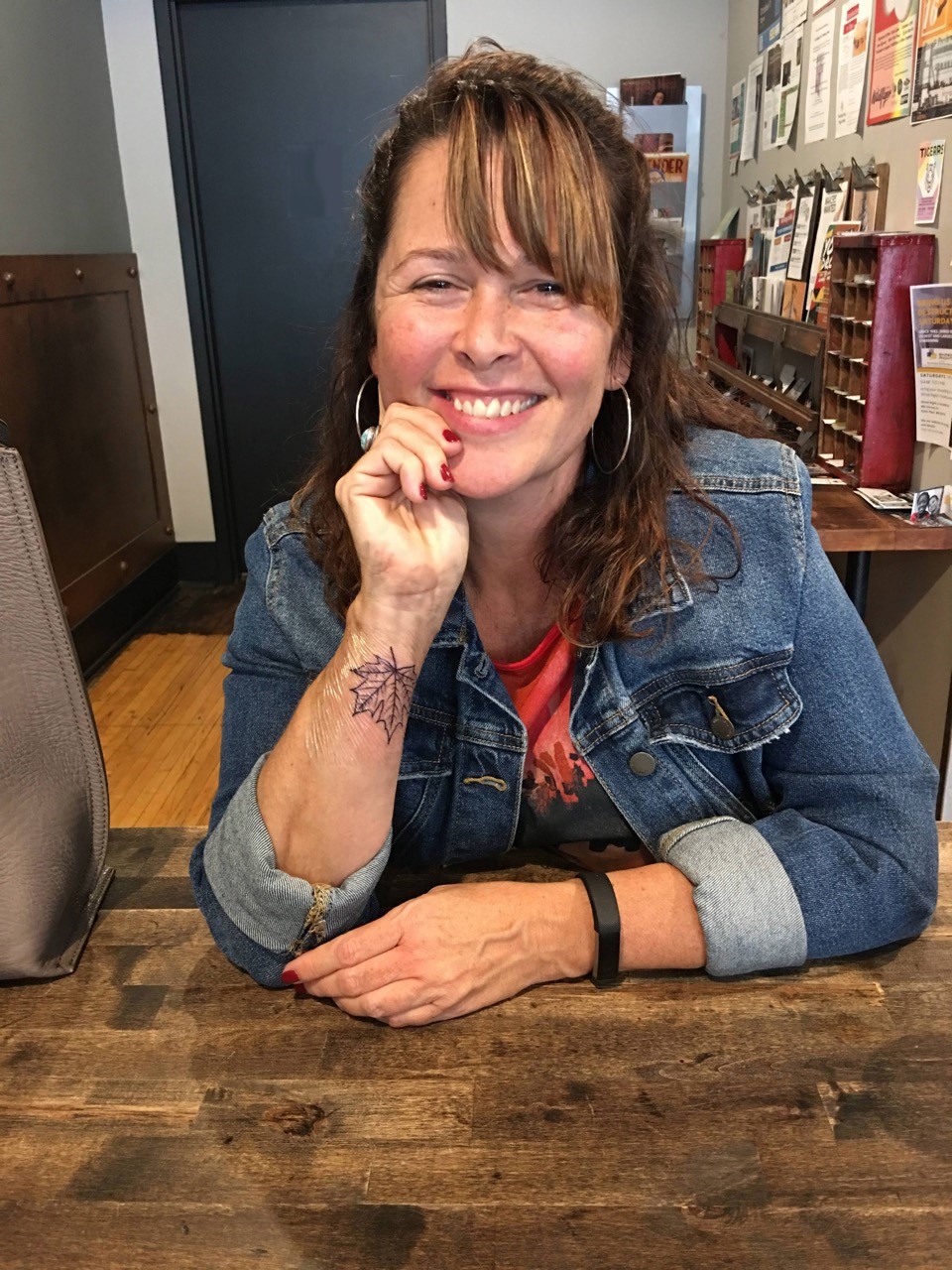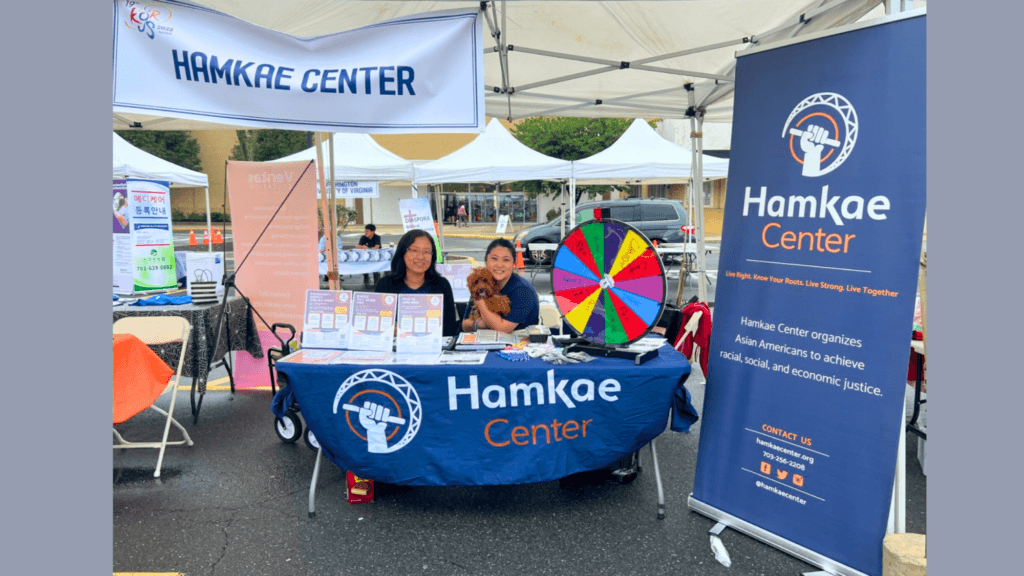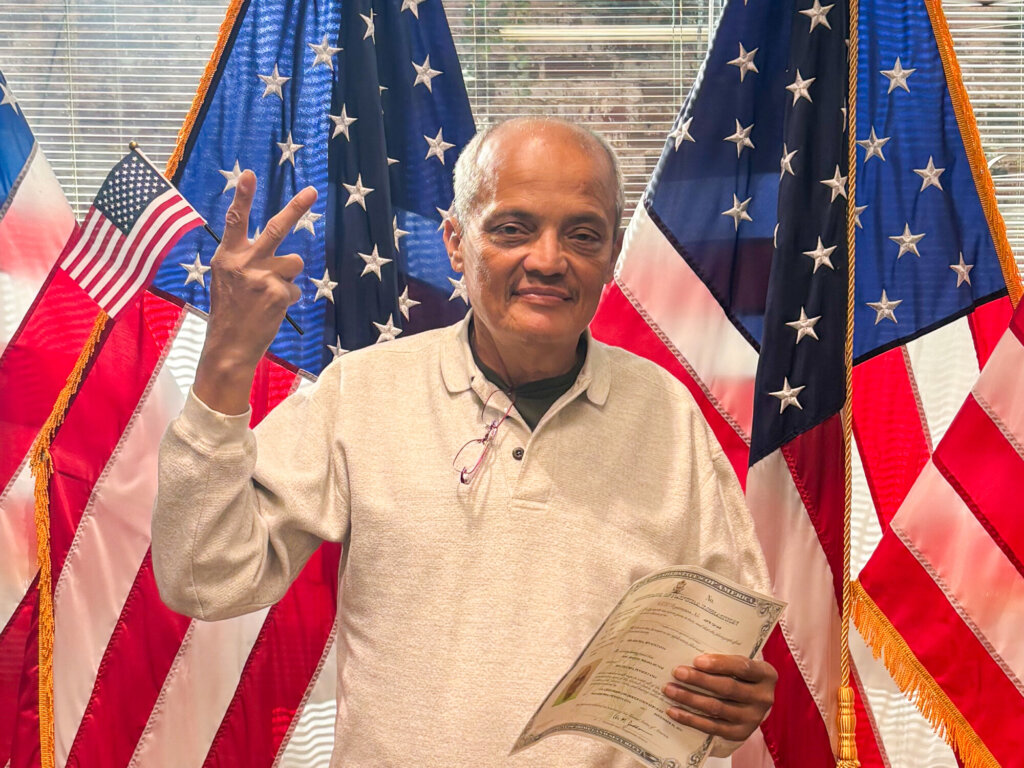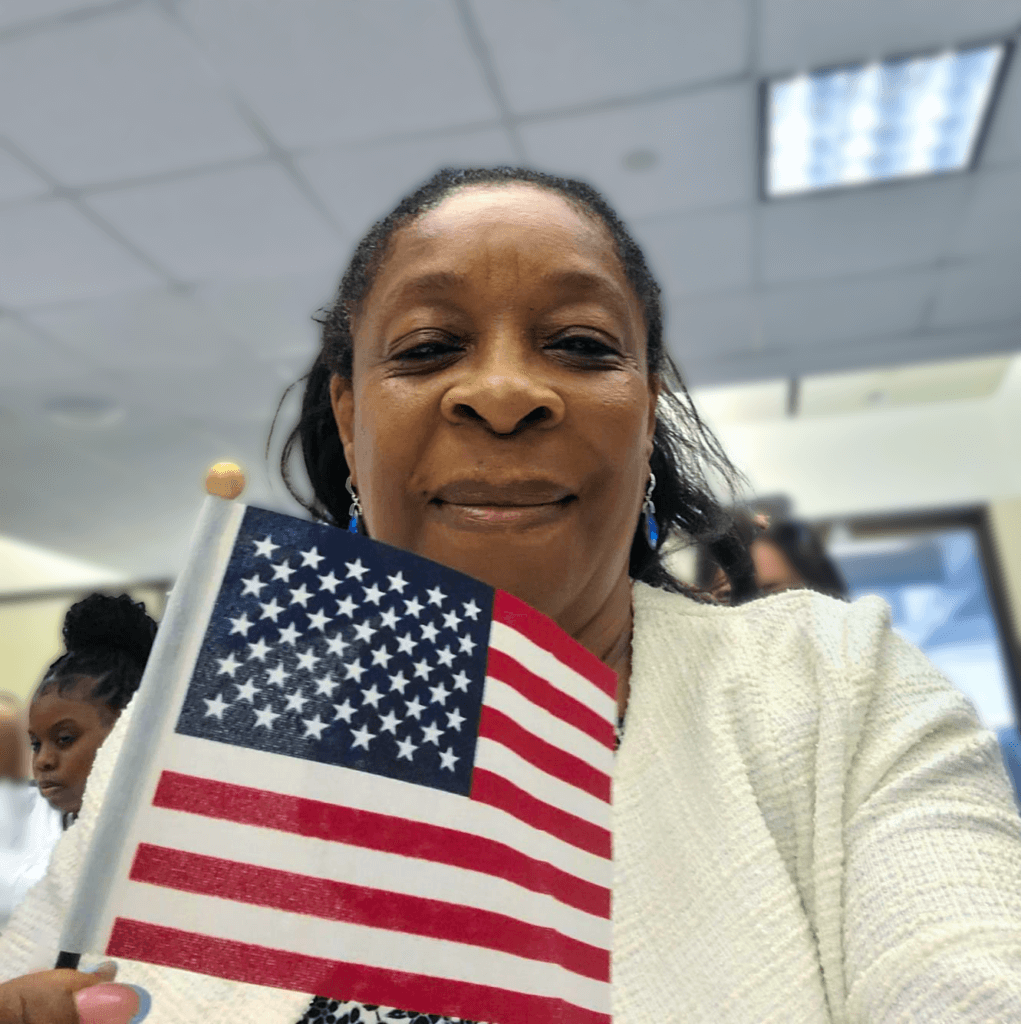Julie Garner-Pringle: At the citizenship test, “I was so nervous I actually stumbled as I read the English sentence even though it’s my first language!”

Explore More
I’m originally from Winnipeg, Canada. I have a teaching degree, so I first went to
Hungary to teach English, and then to Egypt where I met and married my now
ex-husband. Our sons were born in Egypt and, 20 years ago, we decided it was
time to leave there to raise our kids. My ex’s childhood-best-friend lived in
Minnesota and suggested we move there. On a world map it’s only half-an-inch
away from Winnipeg, so I agreed! As it happens, especially with kids, we grew
roots and fell in love with Minneapolis as a city.
My then husband was a dual U.S. and Egyptian citizen so I could get my
green card through him. My two boys were both born in Egypt and they
are actually triple citizens. Egyptian, Canadian, and American. Their dad
could give them U.S. citizenship and I could give them Canadian citizenship.
I guess for many years becoming a citizen wasn’t a priority for me; I kept
thinking that I would eventually move back to Winnipeg and I just never did.
Then a handful of things happened, within a year of each other, that made me
realize that this is really my permanent home. I got divorced, my dog died,
my boys graduated from high school, I sold my house, and the 2016
presidential election happened—all within roughly a year. I was released from
a lot of responsibilities and could leave if I wanted to, but of course did not want
to leave my boys, friends and community. I thought, “Well, if I don’t leave now,
then I’m obviously never leaving.” I realized that I wanted to stay and if I was
going to live here permanently, then I better become a voter.
I work at a refugee resettlement agency that also assists people to become
citizens and I knew that my case was straightforward. I had gotten my original
green card through marriage and I had lived here for 20 years. That made the
case pretty simple. My biggest concern was taking the test. Mostly, I was
scared of having to study for it. I’m 50 years old and I can’t remember the last
time I had to study for a test. So I had a lot of coworkers quizzing me over
many lunch hours with all the hundred questions I needed to study. Six months
earlier we had a fun, networking, trivia event for the July 4th holiday and we used
multiple citizenship questions. I joked that if I didn’t win, then I would apply for
citizenship. So nobody joined my team and they ganged up on me—making me
lose the night and insisting that I had to apply. But afterward they supported me
and helped me study.
Going into the interview was a fascinating experience for me because,
working for a refugee resettlement agency, I understood my situation
was different than that of our clients. I didn’t have family members, with
their safety on the line, depending on me to become a citizen like many
people do. If I failed, the greatest risk to me was $725—the price of
reapplying. And yet I was still very nervous going into the little room,
being interviewed by somebody who had a lot of power over my situation.
I got through the citizenship questions; I answered the first six of the ten
correctly, so I didn’t need to answer any more. But I was so nervous I actually
stumbled as I read the English sentence even though it’s my first language!
The oath ceremony was fascinating. It was held at a professional hockey rink,
a classic Minnesota setting. There were over a hundred countries represented
and it must have been almost 1000 people. I really appreciated the words of
the judge and the governor who both spoke. The theme was that immigrants
are what makes the country great and inspire us all. With my work background,
I know immigration is not only the morally right thing to do, but also makes
economic sense and the judge and the governor both reiterated those sentiments.
I also got a tattoo. I have two
tattoos that have meaning to me. My son has many tattoos. So we made a plan to
go together after the ceremony, on the same day, to get a maple leaf tattoo. I
felt I had to do it to acknowledge that I’m becoming a U.S. citizen but I’m
also not, not Canadian. My family, who all live in Canada, laughed at me.
In many ways I’m the most patriotic of the family. So for them, it was funny
and ironic that I was making this choice to become a U.S. citizen. But I don’t
think my sons were surprised; for many elections the four of us always walked
together as a family to vote. They knew it was important even though their dad
was the only one who could vote. My sons are of age now and they vote. I
think they understand that I couldn’t miss out on that any more. I’m very excited
to finally cast my vote.
Julie Garner-Pringle is the Nursing Assistant Training Program Manager at The International Institute of Minnesota, a NAC partner that provides services and resources to help new Americans begin a secure and economically self-sufficient life in the community.



